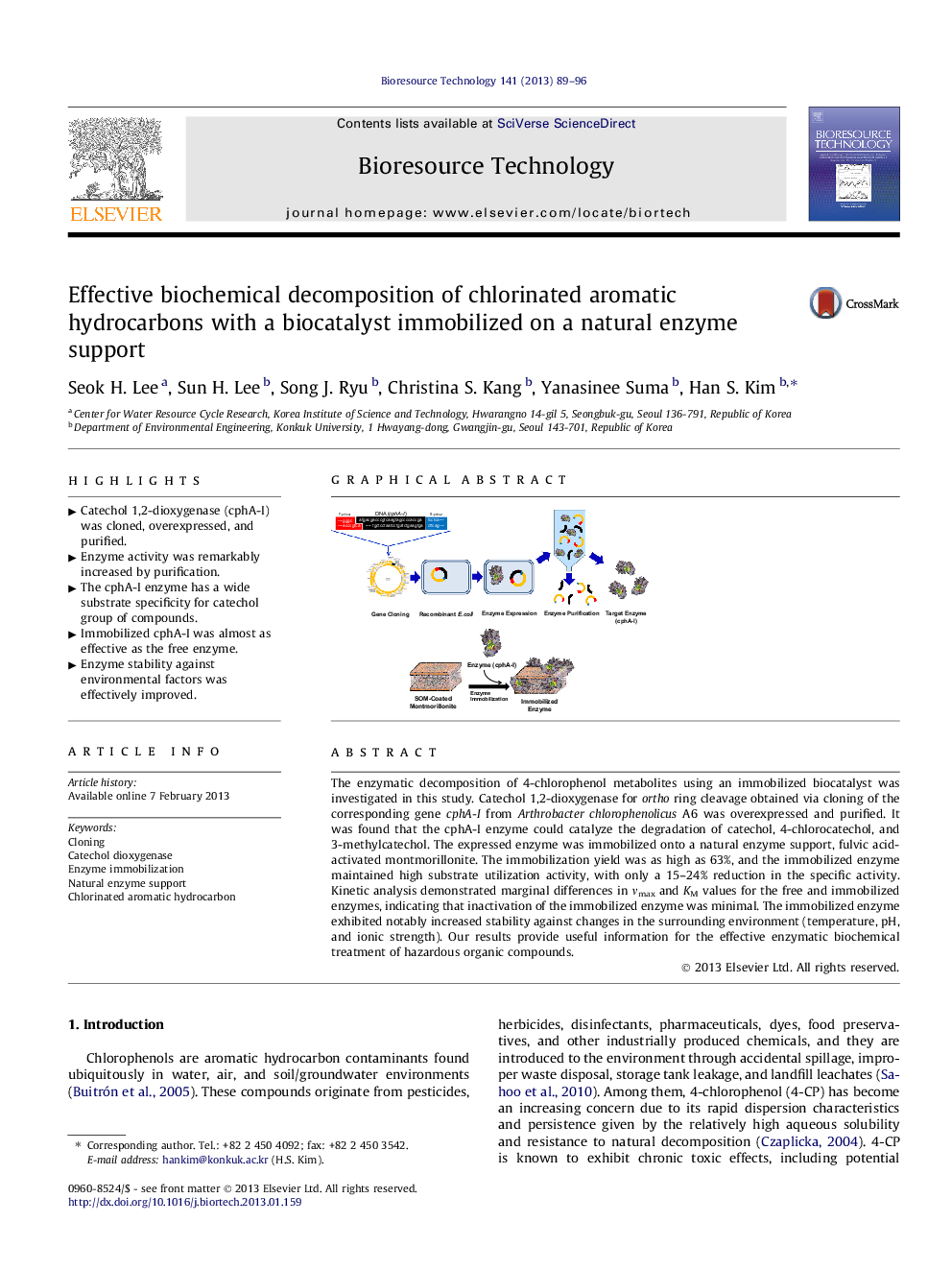| Article ID | Journal | Published Year | Pages | File Type |
|---|---|---|---|---|
| 681092 | Bioresource Technology | 2013 | 8 Pages |
The enzymatic decomposition of 4-chlorophenol metabolites using an immobilized biocatalyst was investigated in this study. Catechol 1,2-dioxygenase for ortho ring cleavage obtained via cloning of the corresponding gene cphA-I from Arthrobacter chlorophenolicus A6 was overexpressed and purified. It was found that the cphA-I enzyme could catalyze the degradation of catechol, 4-chlorocatechol, and 3-methylcatechol. The expressed enzyme was immobilized onto a natural enzyme support, fulvic acid-activated montmorillonite. The immobilization yield was as high as 63%, and the immobilized enzyme maintained high substrate utilization activity, with only a 15–24% reduction in the specific activity. Kinetic analysis demonstrated marginal differences in νmax and KM values for the free and immobilized enzymes, indicating that inactivation of the immobilized enzyme was minimal. The immobilized enzyme exhibited notably increased stability against changes in the surrounding environment (temperature, pH, and ionic strength). Our results provide useful information for the effective enzymatic biochemical treatment of hazardous organic compounds.
Graphical abstractFigure optionsDownload full-size imageDownload as PowerPoint slideHighlights► Catechol 1,2-dioxygenase (cphA-I) was cloned, overexpressed, and purified. ► Enzyme activity was remarkably increased by purification. ► The cphA-I enzyme has a wide substrate specificity for catechol group of compounds. ► Immobilized cphA-I was almost as effective as the free enzyme. ► Enzyme stability against environmental factors was effectively improved.
